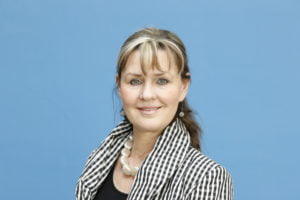
On the 15th December 2016 the European Reference Network Board of Member States approved European Reference Network on Rare Bone Disorders (BOND) as one of the first 23 ERNs. ECTS together with the Skeletal Dysplasia Network, the International Congress on Children’s Bone Health (ICCBH), the European Society of Paediatric Endocrinology (ESPE) and the European Society of Endocrinology (ESE) have worked together to support the creation of this ERN. The application was coordinated by Luca Sangiorgi from the Istituto Ortopedico Rizzoli, Italy and 36 health care providers form 9 countries are part of this ERN.
Rare diseases are defined in the European Union as life-threatening or chronically debilitating conditions that affect less than 1 per 2000 people. It is well-known that small number of patients and the geographic scattering is an obstacle to the diagnosis, access to care, research and improvement of medical expertise.
ERNs are networks of centers of expertise on rare diseases, endorsed nationally by their country of affiliation. At least eight EU Member States and ten healthcare providers are required as main members of an ERN. ERNs are unique and innovative cross-border cooperation platforms between specialists for the diagnosis and treatment of rare or low prevalence complex diseases. With ERNs, patients with rare and complex conditions will be able to benefit from the best treatment and advice available in the EU for their specific condition. Their doctors will have access to a highly specialised pool of colleagues from all over Europe. By ensuring doctors have the most recent and expert knowledge possible, they will be better informed to make decisions on how to adapt treatment and care pathways. This will contribute to improvements in clinical outcomes and the quality of life of patients with a rare disease.
The ERN BOND brings together all rare diseases, essentially congenital, chronic and of genetic origin, that affect cartilage, bones and dentin. This large field has been divided in two main categories, skeletal dysplasias (including 430 various rare disorders) and metabolic bone diseases (including more than 50 rare disorders). These categories themselves are subdivided in several thematic and sub thematic groups.
Because it is impossible to consider all these diseases at once, BOND has chosen 11 main thematic groups and will prioritize two major diseases as a starter and template for the two first years: Achondroplasia and Osteogenesis Imperfecta. Bond will collaborate with the ERN on rare endocrine conditions (EndoRARE ERN) in an interdisciplinary working group for overlapping diseases such as X-linked hypophosphatemia (XLH). Bond will progressively open the field to other rare and ultrarare bone diseases. As the goal of BOND as any ERN is to improve patient-centred care for rare bone disorders, involvement of patients and patient organisations in network development and functioning is essential.
BOND will develop guidelines that allow outcome measurement in relation to service inputs, leading to development and dissemination of best practice. It will identify issues relating to care and access and establish clear standards of care. The network will develop patient-reported outcome and experience measures to guide these. As new therapeutics develop, BOND will ensure rapid access to studies for affected patients.
The BOND kick off meeting is planned to take place in Rome on May 22-24th 2017. Nine Working groups will be created, namely on diagnostic challenge, research, good practice and guidelines, clinical trials, databases concerning natural history of diseases, interaction with other ERNs, multidisciplinary care- eHealth tools, education and training and visibility towards patients and health care providers.
ECTS is confident that the BOND ERN will be of great added value for patients with rare bone diseases and it will remain committed to supporting BOND by active participation in the future. ECTS looks forward to the advances it will bring to the field of rare bone disorders.
You can read more about BOND in a presentation from Dr Luca Sangiorgi, ERN Coordinator
http://www.acar2006.org/images/doc/Convegno_2016/SAN_GIORGI_2016.pdf
More info on European Reference Networks can be found here:
http://ec.europa.eu/health/rare_diseases/european_reference_networks/erf_en
http://ec.europa.eu/health/ern/policy_en
Brochure of all European Reference Networks:
https://ec.europa.eu/health/sites/health/files/ern/docs/2017_brochure_en.pdf
